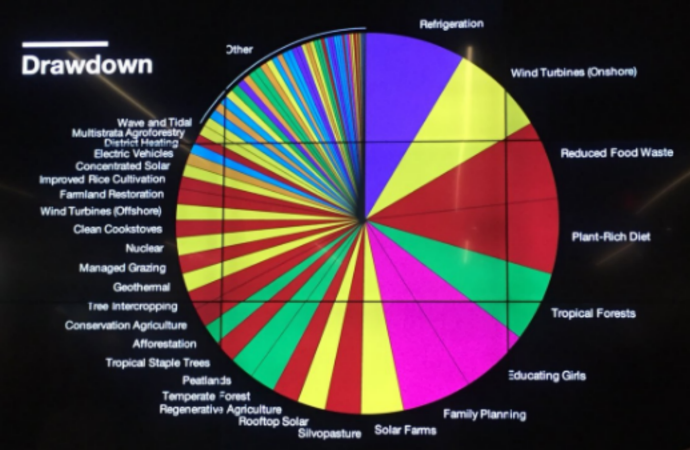Game On: Women are Key to Addressing Climate Change
Jul 6th, 2017 | By admin | Category: Climate ChangeBy Suzanne York.
Recently released United Nations projections reflect a world where the population is still growing. By 2050, there may be close to 10 billion people on the planet.
The choices we make today will determine if we reach that milestone or go higher or possibly lower.
The Family Planning Solution
With that in mind, congratulations to Project Drawdown for taking on ways to build a healthy society in the face of numerous climate challenges by including family planning as one solution in their tome Drawdown: The Most Comprehensive Plan Ever Proposed to Reverse Global Warming. Few books on climate and environment discuss how family planning and women’s rights are an answer. Encouragingly, the organization’s book is on the best-seller list, and more environmentalists are being exposed to solutions they might otherwise ignore.
In Drawdown’s ranking of 100 solutions to climate change, educating girls is solution number six and family planning is number seven. It is refreshing to see promoting and enhancing the rights of women and girls as a viable response to dealing with climate change.
In Project Drawdown’s June newsletter, founder Paul Hawken noted that their “approach has gained a large following quickly because it does not make people wrong or invoke fear and doom as a motivating method.” He said “We need to work vigorously on the solutions, all of the solutions. Family planning and addressing the needs of women and girls is an obvious and right effort to support.”
Though talking about population growth has been considered “taboo” or referred to as “the elephant in the room” because of past human rights violations, it is too important a topic to continue to ignore. Population is increasing in countries that greatly need support for women’s health, reproductive rights, economic empowerment, education and land rights – countries such as Niger, Democratic Republic of Congo, Nigeria, and Afghanistan.
The Drawdown authors write that “growing evidence suggests that family planning has the additional benefit of building resilience – helping communities and countries better cope with and adapt to inevitable changes brought by global warming.”
World Population Day and Carbon Emissions
This July 11th is World Population Day, a globally-recognized day dedicated to raising awareness on the impacts of our growing world on people and the environment. As the above book highlights, supporting and investing in voluntary family planning is a key solution to a healthy planet. This year’s World Population Day theme is Family Planning: Empowering People, Developing Nations. Addressing the global unmet need for contraceptives is a game-changer for women, their families and ultimately, the environment.
Yes, voluntary family planning can help the environment. Drawdown suggests that investing in family planning, combined with girls’ education, could save 123 gigatons of carbon dioxide. It’s not an easy comparison, linking human rights and carbon emissions. Drawdown recognizes that it’s inappropriate to monetize a human right yet it effectively addresses the connection between the needs of women and girls and a healthy environment.
It’s the Right Thing to Do
The best thing to keep in mind is that this is low-hanging fruit – most women want reproductive rights and health services, and the financial costs are not that high. Coercion is unacceptable and is not needed. In Drawdown, it is refreshing to see the following:
To revere human life it is necessary to ensure a viable, vibrant home for all. Honoring the dignity of women and children through family planning is not about centralized governments forcing the birth rate down – or up, through natalist policies. Nor is it about agencies or activists in rich countries, where emissions are highest, telling people elsewhere to stop having children. It is most essentially about freedom and opportunity for women and the recognition of basic human rights.
We won’t solve climate change or any environmental problem without respecting human rights and recognizing the struggle of people trying to meet their basic needs, especially women. This includes reproductive rights. When we support women’s health and family planning needs, the environment benefits.
Suzanne York is Director of Transition Earth and is currently in Uganda researching organizations implementing the Population, Health and Environment (PHE) approach.



![School girls in Bisesero, Rwanda. [photo: Suzanne York]](http://populationgrowth.org/wp-content/uploads/2017/07/Bisesero-school-girls-281x300.jpg)